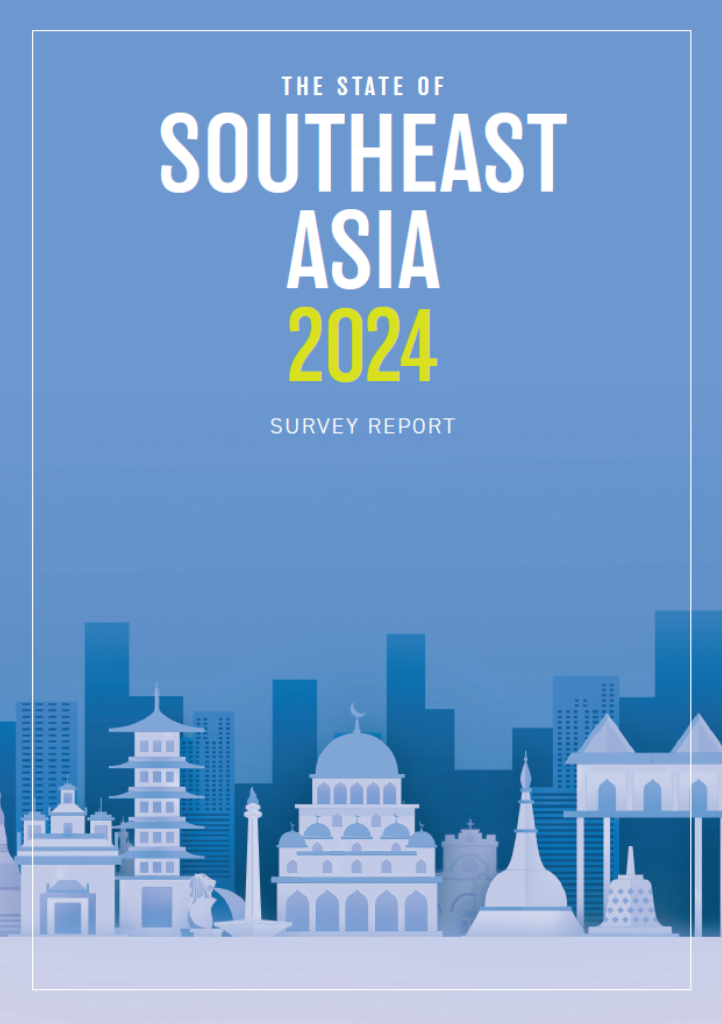ISEAS – Yusof Ishak Institute is pleased to announce the publication of The Lion’s Roar: The Authorised Biography of S Rajaratnam, Volume Two by Irene Ng, bestselling author of the first volume, The Singapore Lion. Prime Minister and Minister for Finance, Mr Lawrence Wong officially launched the book on 22 July 2024.
The Wang Gungwu Visiting Fellows Programme honours Professor Wang Gungwu, former Chairman of the Board of Trustees at ISEAS – Yusof Ishak Institute (ISEAS) for his distinguished tenure of 17 years and for his key contributions in nurturing a strong culture of research excellence at ISEAS.
The programme aims to build the next generation of scholars and policy makers exploring the nexus of big-power relations and its impact on Southeast Asia, through policy relevant and contemporary research on international politics and security, regional economics and digital technology, in the following priority areas of research:
- Developments in US-China relations and their impact on Southeast Asia
- Asia Pacific security issues (e.g. South China Sea, China-ASEAN relations)
- Progress and prospects of global/regional economic cooperation initiatives
(e.g. Belt and Road Initiative and Regional Comprehensive Economic Partnership) - Rise of China and its impact on Southeast Asian communities
- Use of digital media and technology by countries to further their interests and influence perceptions in Southeast Asian countries
Download info sheet here.
Fellowships may be for a minimum of two (2) months, up to a period of six (6) months, subject to approval by ISEAS. Successful applicants are expected to be in residence at ISEAS for the duration of their fellowship.
Expected Outputs and Publication Opportunities
Wang Gungwu Visiting Fellows (WGWVF) are required to contribute to ISEAS Perspective and Fulcrum publications in the areas of their research and speak at an in-house seminar on their research findings during their fellowship at ISEAS. As WGWVF, researchers will be part of a network of regional scholars and are welcome to contribute to ISEAS after their fellowship.
Stipend and Benefits
- The Wang Gungwu Visiting Fellows Programme offers successful applicants a fixed monthly stipend (inclusive of a housing subsidy) for the duration of their fellowship at ISEAS and round-trip economy airfare between their home base and Singapore.
- As a Wang Gungwu Visiting Fellow, you will be invited to a meeting with Professor Wang Gungwu during your fellowship.
- Successful applicants will enjoy access to office space, computer equipment and IT services, ISEAS Library and other facilities at ISEAS, where appropriate.
- Proposals for partial/full cost-sharing will also be considered.
Eligibility
The Wang Gungwu Visiting Fellows Programme is intended for post-doctoral research fellows and mid-career policymakers.
For mid-career policymakers, we welcome applicants who may not have a Ph.D. or equivalent degree, provided that their CV/Resume can ascertain an appropriate level of professional experience and research interest.
Application Requirements
Application period for the 2025 intake: 6 May – 2 August 2024.
Applicants must submit:
- Cover Letter
- CV/Resume
- Research Statement (3 pages, double-spaced) addressing:
- Area of research, research methodology, timeline, and expected outputs
- Duration of fellowship in residence at ISEAS – Yusof Ishak Institute
- Two Reference Letters
- Proposal for partial/full cost-sharing (if applicable)
Apply Now
1. All applications must be received no later than Friday 02 August 2024.
2. Submit the application via email to: development@iseas.edu.sg with subject:
Application for ISEAS Wang Gungwu Visiting Fellows Programme 2025 – [First Name and Last Name]
3. The two referees should provide the Letters of Reference via email to: development@iseas.edu.sg with subject: Application for ISEAS Wang Gungwu Visiting Fellows Programme 2025 – [Reference Letter for First Name and Last Name]
For enquiries on this programme, please contact:
Mr Malcolm Yiong
Assistant Director, Development
ISEAS – Yusof Ishak Institute
30 Heng Mui Keng Terrace
Singapore 119614
development@iseas.edu.sg

The State of Southeast Asia 2024 Survey conducted by the ASEAN Studies Centre at ISEAS – Yusof Ishak Institute reveals that Southeast Asia’s top preoccupations are with unemployment, climate change, and intensifying economic tensions between major powers. The Israel-Hamas conflict is the region’s top geopolitical concern, while China has edged past the US to become the prevailing choice if the region were forced to align itself in the ongoing US-China rivalry.

In FY 2022/2023, we witnessed the worrisome entrenchment of deep-seated conflicts around the world. Meanwhile, closer to home, ASEAN continues to search for a coherent and decisive way to deal with the crisis in Myanmar.
Against this backdrop, ISEAS has been kept busy analysing trends and informing our target audiences on regional developments. Fulcrum blogsite (Fulcrum.sg) which we started in late 2020 has attracted a growing readership with its timely, concise, and readable analysis. Our two annual surveys, the State of Southeast Asia Survey and the Southeast Asia Climate Outlook Survey, continue to provide insights into the perceptions and views of Southeast Asians on the geopolitical environment and climate crisis respectively. Our signature events have convened to great support from participants in the region as we return to in-person format post-Covid.
Organisationally, in an effort to recognise, develop and retain talent, we have introduced the Assistant Fellow position as a bridge between the Senior Research Officer and Fellow positions to allow a young researcher to move up the ranks if they want to pursue a career at ISEAS. We also introduced the “ISEAS Most Valuable Player Award” to recognise officers—both research and non-research—who have produced work of a consistently high quality. In FY2022, we also welcomed new Board of Trustees members: Ms Foo Chi Hsia, Deputy Secretary, Ministry of Foreign Affairs; and Ms Amelia Tang, Director, Prime Minister’s Office.
We hope you will continue to support ISEAS and our work.
For more details on these and other information, please download our Annual Report in PDF.
Click here to view our past annual reports.




